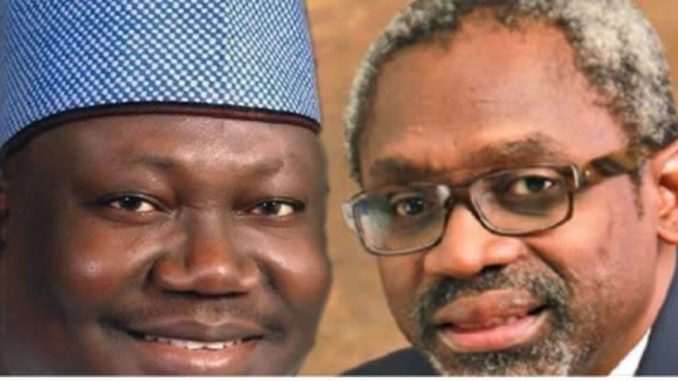
IN a characteristically crass display of gross insensitivity to the mood of the nation, a chamber of Nigeria’s bicameral National Assembly has returned to one of its favourite pastimes, brushing aside pressing and sensitive national issues and fretting over the conferment on themselves of further personal advantages and privileges. But it has not been without a challenge, surprisingly, from the other chamber of the same Assembly.
Just as the House of Representatives members are knuckling down to producing a bill that would confer the status of immunity from prosecution on their presiding officers, the senators are preoccupied with the exact opposite – stripping members of the executive arm of government, who are already protected by the clause, of their privileged status. To heighten the frivolities of the House of Representatives members, their bill, which has already scaled the first reading, is also designed to cover all the presiding officers in the Houses of Assembly across the 36 states of the federation.
Why Nigeria’s overpaid and pampered legislators can be contemplating such inanities at these trying times is indeed difficult to fathom. Nigeria currently faces a most challenging security situation, where the safety of lives and property can no longer be guaranteed. The economy that only managed to escape from recession three years ago is also fast running into fresh turbulence, as oil prices take a pounding from the ongoing coronavirus pandemic that has spawned a virtual lockdown of the global economy.
It is a mark of the frightening level of the disconnect between the lawmakers and the people they were supposedly elected to represent that they are either debating how to spend a whopping N37 billion for the renovation of the Assembly complex or buying luxury cars for themselves. This also coincides with Boko Haram’s long-running carnage, as well as when other terror groups, bandits and killer herdsmen, are laying large swathes of the country to waste. At a time when the prices of oil, Nigeria’s main foreign exchange earner, have plunged sharply, portending difficulties ahead, lawmakers are preoccupied with conferring immunity on themselves.
The constitution makes provision for immunity from prosecution for 74 persons, namely the President, his second in command, the 36 state governors and their deputies. In doing so, it is taken for granted that, as members of the executive arm of government, they need to concentrate fully on their job of executing projects and implementing programmes. They should be free from all types of distraction. The legislators already have the parliamentary immunity, which gives them freedom to say anything on the floor of the parliament. What else do they want?
On several occasions, the Senate had advocated the need for the amendment to the constitutional provision of immunity for members of the executive to include the leadership of the legislature. The volte-face in seeking to strip the executive of this privilege could therefore be a question of trying to deprive everyone else, if it cannot be extended to its members. This vain, selfish venture should be thrown out.
As currently practised, the clause already shields members of the executive – the president and state governors – from being prosecuted while they are still in office. Adding lawmakers to the list is dangerous and elevates some individuals above every other on the mere strength of having been elected as parliamentarians.
Immunity was enshrined by monarchs who in the past were absolute rulers. In England, France, Austria and other European countries, this was rooted in the doctrine of the “divine right of kings” whose actions could not be questioned. This has since been relaxed as republicanism or constitutional monarchy replaced absolutism. The United States guarantees immunity from criminal prosecution for the president on the principle of Qualified Immunity that frees him from the distraction of criminal prosecution; he can be sued in civil matters and out of office and face prosecution for crimes committed while in office. The French Constitution also shields the president from criminal arraignment except for the crime of “high treason.”
Corruption in Nigeria has however been identified as the major bane of development. After more than 60 years of oil discovery, the country is today adjudged the poverty capital of the world because her oil wealth has been stolen. But countries such as Qatar and the United Arab Emirates have been able to transform their infrastructure, using oil money. Norway has more than $1 trillion Sovereign Wealth Fund Investment around the world because she has been able to put her oil wealth to good use.
In Nigeria, anything that stands in the way of fighting corruption should thus be kicked out. But the legislature has the sole responsibility of holding the executive accountable in line with the principle of checks and balances. The National Assembly should be alive to its constitutional role of checking the abuse and misuse of executive powers.
END

Be the first to comment